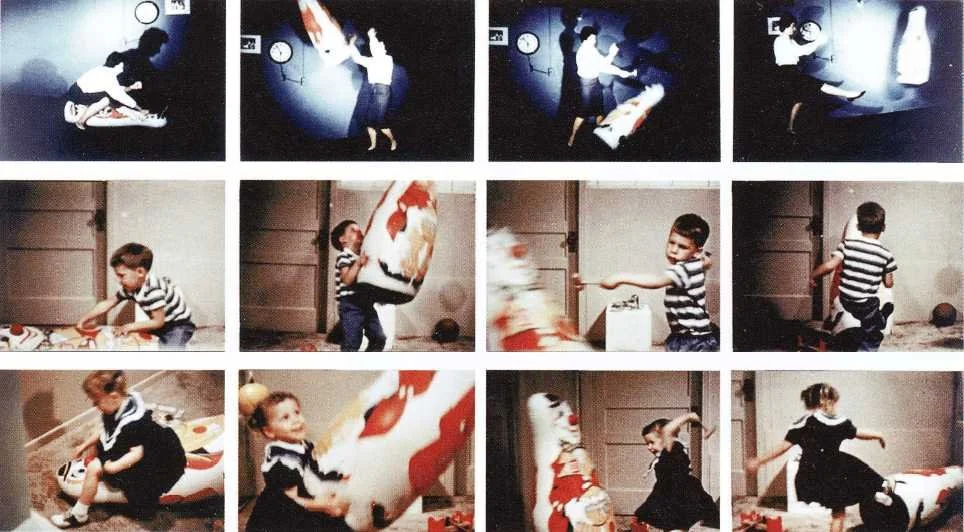
Title of Study : Bobo Doll Experiment
Lead Researcher: Albert Bandura
Date of Study: 1961
Core Theory: Social Learning
Study Icon: Bobo the Doll
Bandura, Bobo Doll Experiment
Summary: Bandura’s Bobo Doll Experiment centered around the theory of Social Learning. Social Learning Theory explores the belief that new behaviors are learned through observation and modeling, which is especially apparent in young children.
Implications: In this study, Bandura split children into sex-specific groups and placed them into one of two conditions—nonaggressive behavior model or aggressive behavior model. After observing one of the models, they were taken into a play room and told they would only have two minutes to play with the toys. During the 20-minute observation phase, researchers noted that children exposed to the aggressive behavior model were significantly more likely to imitate the aggressive behavior they saw—both verbal and physical. Physical aggression was also more likely in males.
Limitations: While this study has important implications, it’s necessary to acknowledge its limited scope and sex-specific trends. Physical aggression was more readily modeled in males, but verbal aggression had no sex difference. Children were also more likely to model adults of the same sex.
FOR A GOOD LAUGH:
Sources
Mcleod, Saul. “Bobo Doll Experiment.” Bobo Doll Experiment | Simply Psychology, 2014, https://www.simplypsychology.org/bobo-doll.html.
Nolen, Jeannette L. “Bobo Doll Experiment.” Encyclopædia Britannica, Encyclopædia Britannica, Inc., 9 Mar. 2022, https://www.britannica.com/event/Bobo-doll-experiment.

